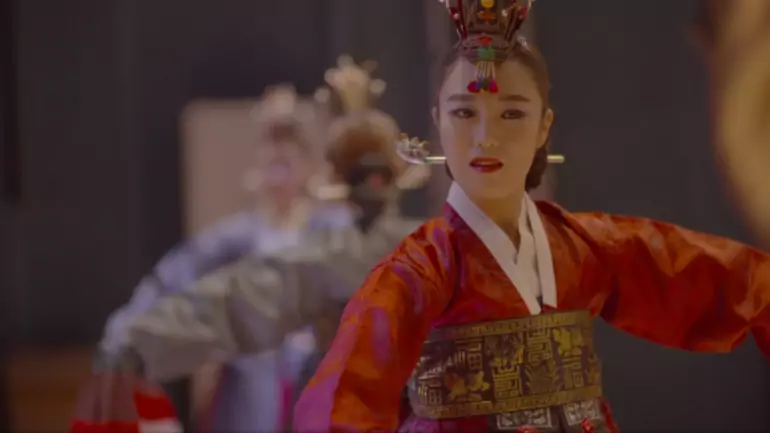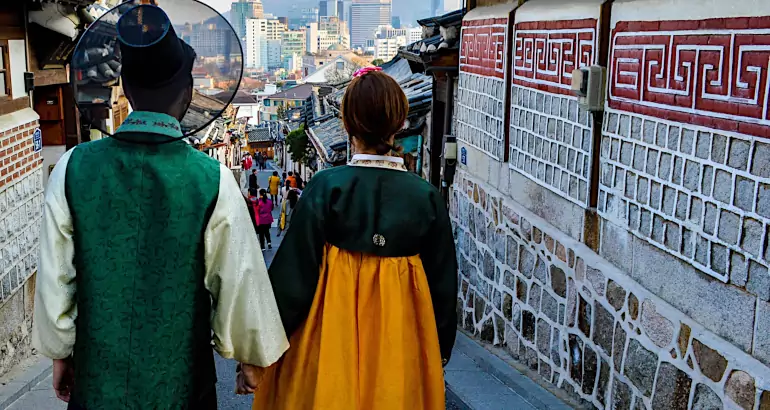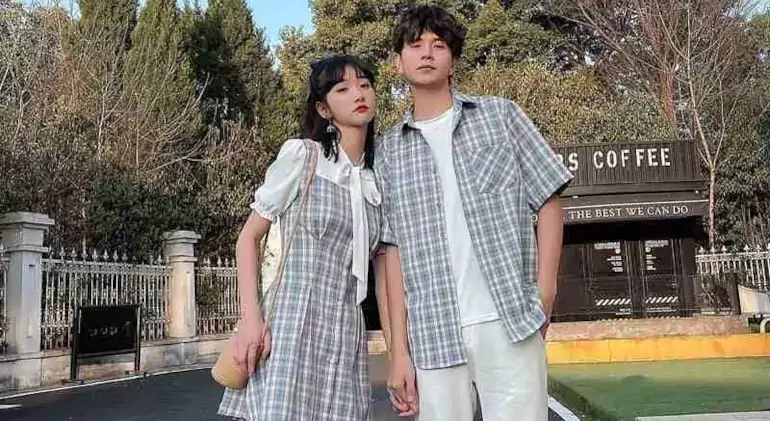K-POP: The Iconic Music of the Korean Culture

What is K-POP?
K-POP, an abbreviation for Korean Popular Music, is a dynamic subgenre of pop that originated in South Korea. Fusing pop and electronic elements with influences from more contemporary genres, it creates a sound that is both dynamic and energetic. Presently, this musical style has claimed the title of the most listened-to on YouTube in 2020, surpassing records for the highest number of views and visits in a single day within the music video category.
Origins and Evolution
In the 1990s, K-pop embarked on a journey beyond its South Korean origins, captivating a global audience with its infectious tunes, dynamic dance performances, and the meticulously crafted aesthetics of its band members. These individuals, often revered as "idols" for their admirable qualities, play a pivotal role in shaping the rich tapestry of K-pop culture. Presently, K-pop has become a ubiquitous force with a massive fanbase worldwide.
The allure of K-pop stars extends naturally to the fashion and beauty realms they inhabit. An integral component of the K-pop experience is the open communication between artists and their fans. Artists generously share insights into their daily lives, enabling fans to effortlessly delve into the world of their favorite idols, discovering the fashion brands they embrace and the skincare routines they follow.
Why has it gained worldwide acclaim?
K-pop has evolved into a genuine global phenomenon, owing its success to a unique fusion of infectious melodies, breathtaking choreography, and a myriad of exceptionally charismatic artists who devoted years to honing their singing and dancing prowess. The foremost K-pop groups in Korea propelled this genre onto the international stage, achieving unprecedented success.
Prominent K-pop Groups: Korean Icons
K-pop, a genre that embraces a spectrum of musical flavors, intertwines its pop music origins with soul, rap, rock, R&B, and even funk.
Among the most distinguished groups are BTS, BlackPink, Girls Generation, and ITZY.
The business acumen of K-pop transcends the realm of music; these artists actively produce substantial content across social media and various platforms, offering glimpses into their cultural identities and daily lives. A defining trait of K-pop enthusiasts lies in their unwavering allegiance and steadfast support for their favorite groups. According to an analysis by 'Kworb.net,' two of the top three groups exhibit exceptional popularity.
The Most Recognized and Global Icons:
BTS
This Group has notched numerous records, particularly in 2018 with the track 'Black Swan,' eclipsing Adele's 'Hello' as the musical composition that claimed the top spot in the highest number of countries. BTS achieved this milestone in 104 nations. Similarly, on August 21 of the current year, the group dropped 'Dynamite,' a song that once again outpaced Adele, this time as the music video with the most views and visualizations in a week in the history of YouTube.
Established in 2010 in Seoul, the capital of South Korea, the group is composed of seven male artists: Jin, Suga, J-Hope, RM, Jimin, V, and Jungkook. Their indelible impact on the global music scene solidifies their status as the most-viewed artists of 2020 thus far.
BlackPink
BlackPink is an all-female ensemble that has secured the third-highest number of views on YouTube in 2020. The group is composed of four talented singers: Jisoo, Jennie, Rosé, and Lisa.
Despite making their debut on August 8, 2016, they swiftly rose to become one of the foremost musical groups globally. On June 26, they unveiled their song 'How You Like That,' simultaneously breaking five Guinness World Records.
The video amassed an impressive 86.3 million views within its initial 24 hours, setting records as the most-viewed YouTube video, the most-viewed music video, and the most-played 'K-pop' video. Furthermore, the live premiere attracted 1.66 million users, establishing itself as the most-viewed video premiere and the most-viewed music video premiere.
What sets this subgenre apart?
Beyond crafting music, K-pop artists meticulously curate elements like choreography, a distinctive aesthetic, Korean cosmetics, and fashion. Various K-pop groups have become trendsetters on a global scale, with their innovative approach to music, style, choreography, and beauty.
Korean culture places a strong emphasis on beauty standards defined by a refined aesthetic. Clean skin, styled hair, and unique clothing are hallmark features of fashion originating from South Korea. These trends have significantly influenced K-pop, establishing it as a musical genre that captivates a vast audience.
The song lyrics are equally impactful, often delving into highly emotional themes of love while imparting messages of personal growth and lifestyle guidance to the youth.
How is K-POP Connected to K-BEAUTY?
K-beauty, or Korean beauty, has flourished alongside K-pop, captivating a global audience and inspiring people worldwide to embrace the 10-step skincare routine favored by K-pop artists.
The 10-step K-beauty routine involves layering products to attain healthy and radiant skin, including:
- Makeup remover
- Second cleanser
- Exfoliation
- Toner
- Essence
- Serum
- Masks
- Eye cream
- Creams / emulsions
- Sunscreen
While it might appear intricate, those who adhere to this routine consistently achieve remarkable results. Many individuals, even those initially unfamiliar with Korean culture or K-pop, find themselves fascinated by the allure of Korean beauty.
 Discovering South Korea: 8 Fascinating Tips for Your Journey
Discovering South Korea: 8 Fascinating Tips for Your Journey Unveiling the History of Gisaeng: Who Were They?
Unveiling the History of Gisaeng: Who Were They? Discover the story of Kim Il-Sung, the founding figure of North Korea
Discover the story of Kim Il-Sung, the founding figure of North Korea 30 Fascinating Facts about South Korea and Koreans
30 Fascinating Facts about South Korea and Koreans Customs and Traditions: A Guide to Good Manners in South Korea
Customs and Traditions: A Guide to Good Manners in South Korea The Challenge of never having experienced a romantic relationship in South Korea
The Challenge of never having experienced a romantic relationship in South Korea Descendants of the Sun – Revisiting My Beloved Flower Boy
Descendants of the Sun – Revisiting My Beloved Flower Boy Love in South Korea: Exploring Relationships and Dating Culture
Love in South Korea: Exploring Relationships and Dating Culture





Leave a Reply